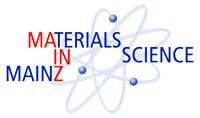


Physikalisches Kolloquium
May 24, 2011 at
5 p.m. c.t.
in
H?rsaal des Instituts f?r Kernphysik, Becherweg 45.
Prof. Dr. Alfons Weber
Institut für Physik
a.weber@uni-mainz.de
Prof. Dr. Hartmut Wittig
Institut für Kernphysik
hartmut.wittig@uni-mainz.de
Divide and conquer - Synthetic Biology of Cell Division
Prof. P. Schwille (Biotechnology Center, Technische Universitaet Dresden)
In recent years, biophysics has accumulated an impressive selection of novel techniques to analyze biological systems with ultimate sensitivity and precision. Single molecule imaging, tracking and manipulation have enabled us to unravel biological phenomena with unprecedented analytical power, and to come closer to revealing fundamental features of biological self-organization. The power of physics has always been the reductionist approach, i.e. the possibility to define an appropriate subsystem simple enough to be quantitatively modeled and described, but complex enough to retain the essential features of its real counterpart.
Transferring this approach into biology has so far been extremely challenging, because most ?modern? biological systems usually comprise so many modules and elements, many of them still awaiting to be functionally resolved, that it is a risky task to define truly essential ones. Nevertheless, the strive for identifying minimal biological systems, particularly of subcellular structures or modules, has in the past years been very successful, and crucial /in vitro /experiments with reduced komplexity can nowadays be performed, e.g., on reconstituted cytoskeleton and membrane systems. As a particularly exciting example for the power of minimal systems, self-organization of essential proteins of the bacterial cell division machinery could be shown in a simple assay, consisting of only two protein species, an energy source, and a membrane. In my talk, I will discuss some recent results of our work on membrane-based systems, using single molecule optics and biological reconstitution assays. I will further discuss the perspective of assembling a minimal system to reconstitute bacterial cell division.